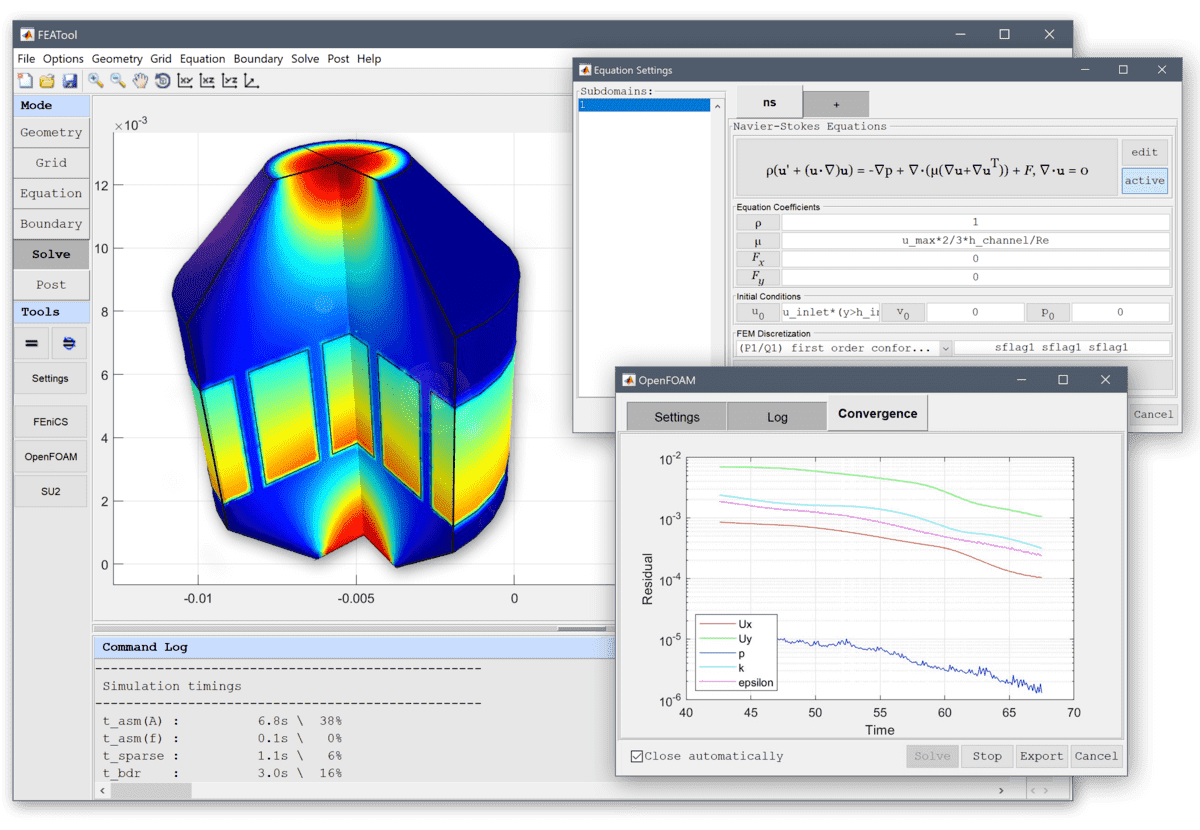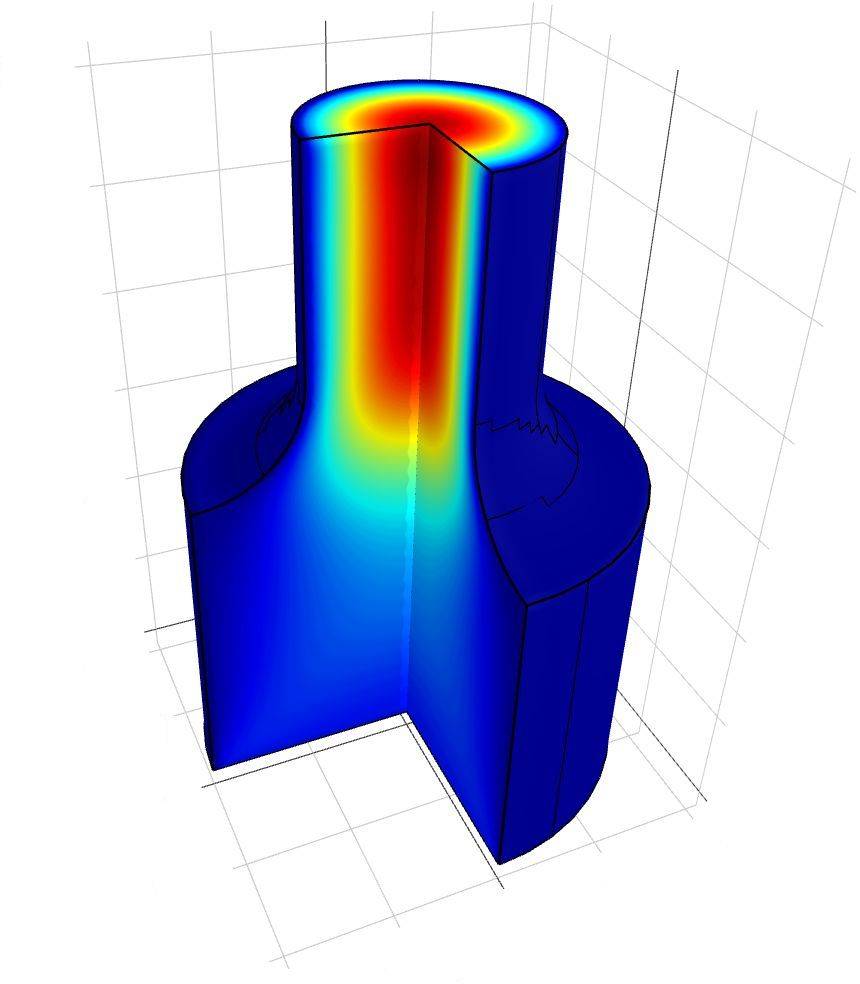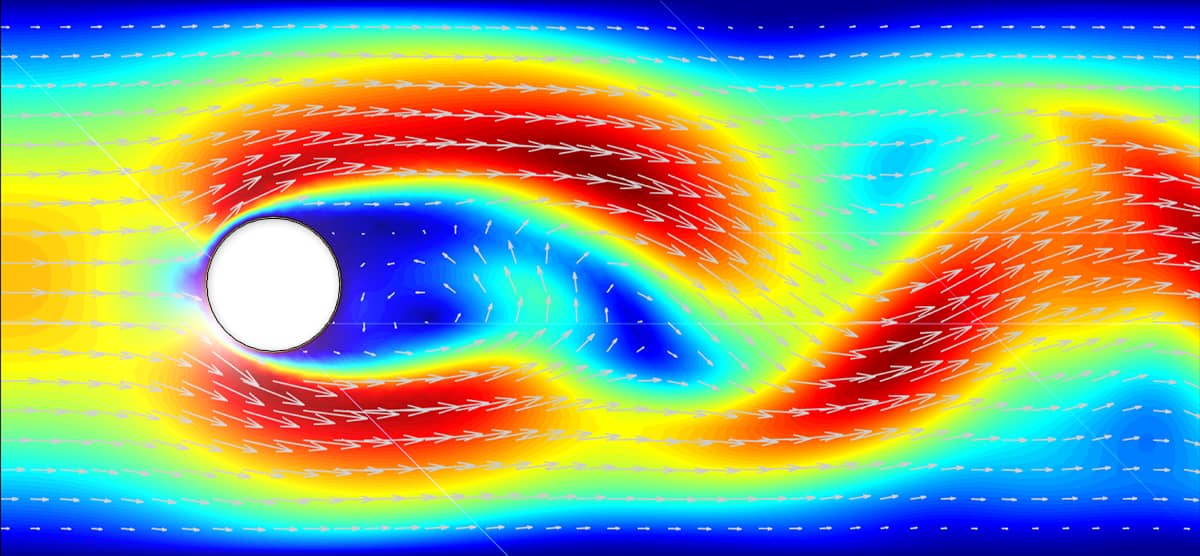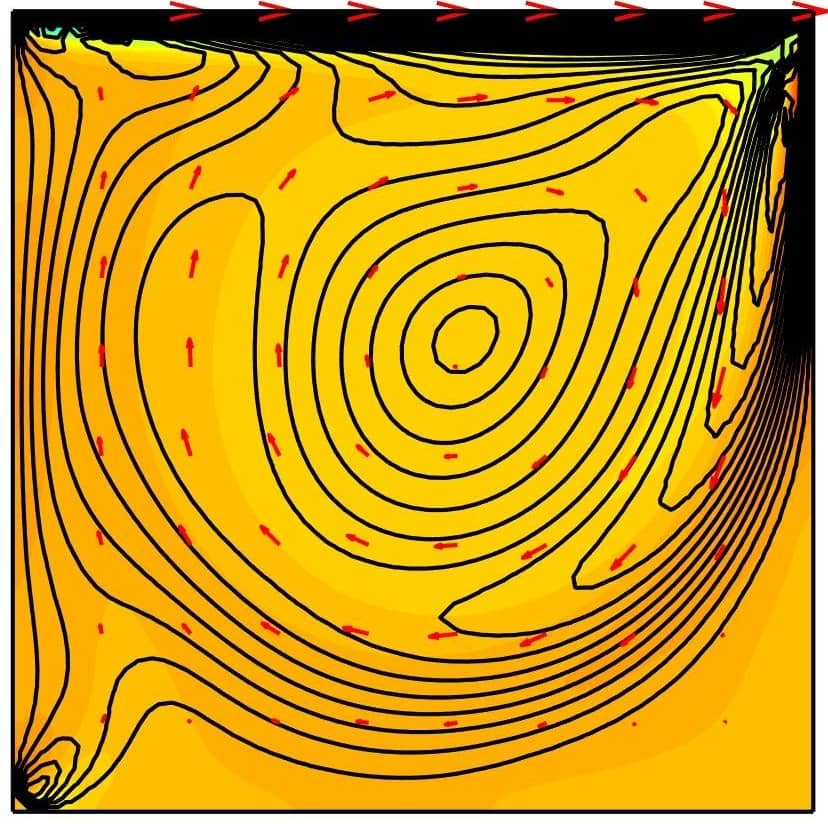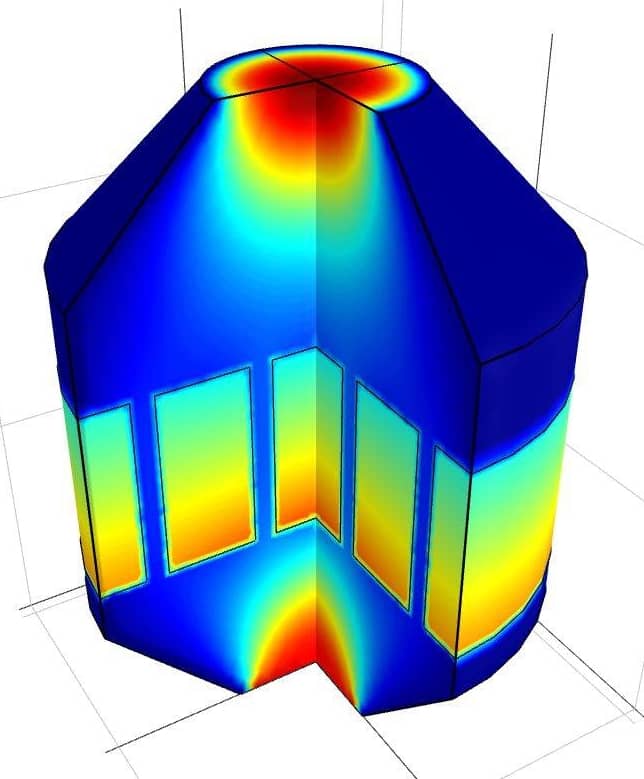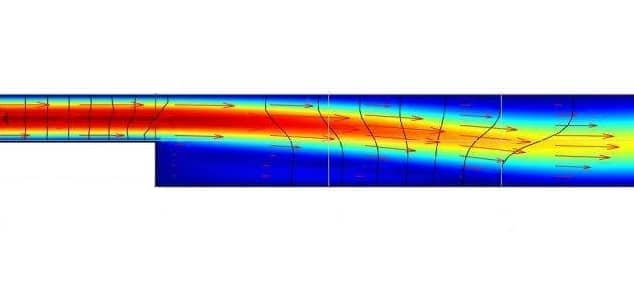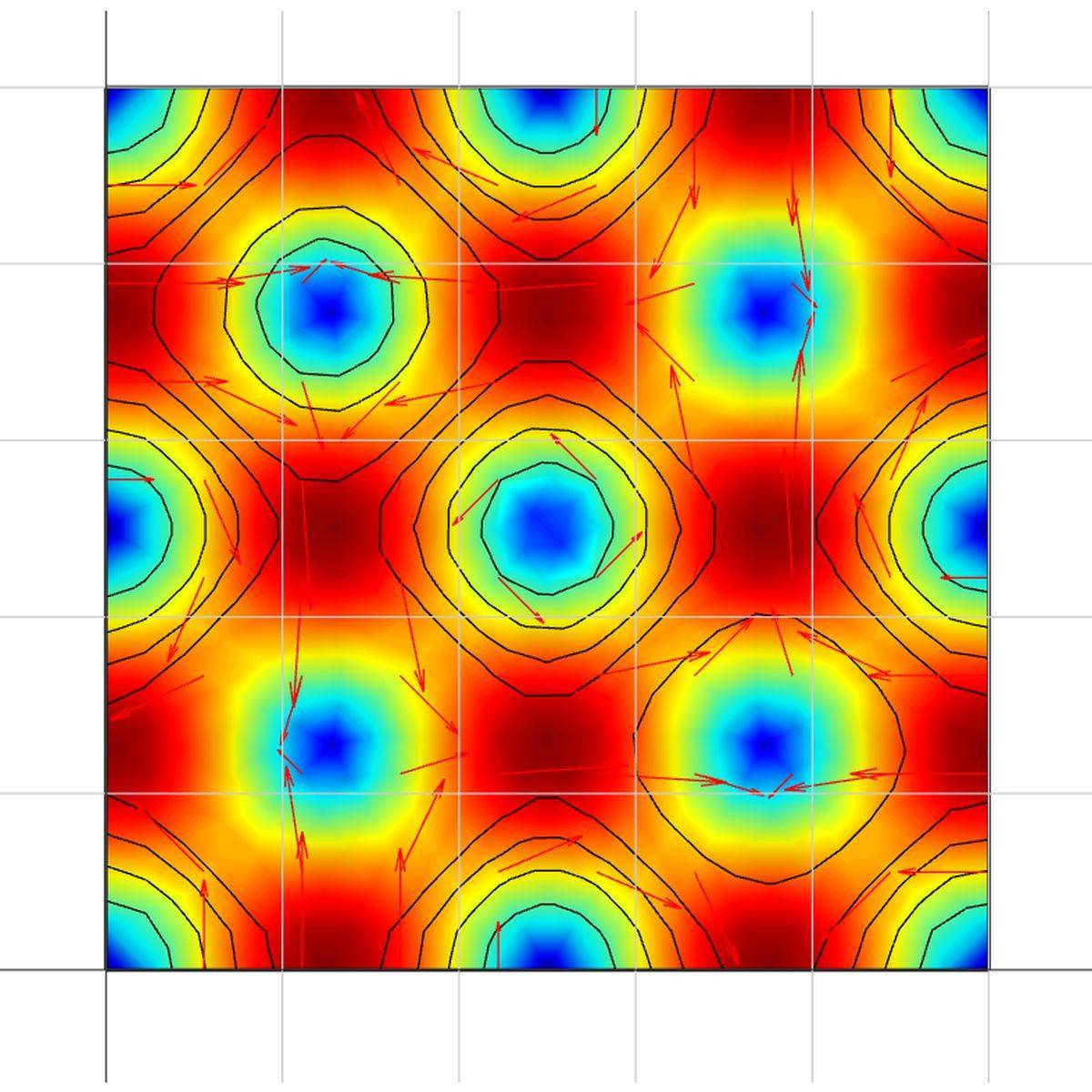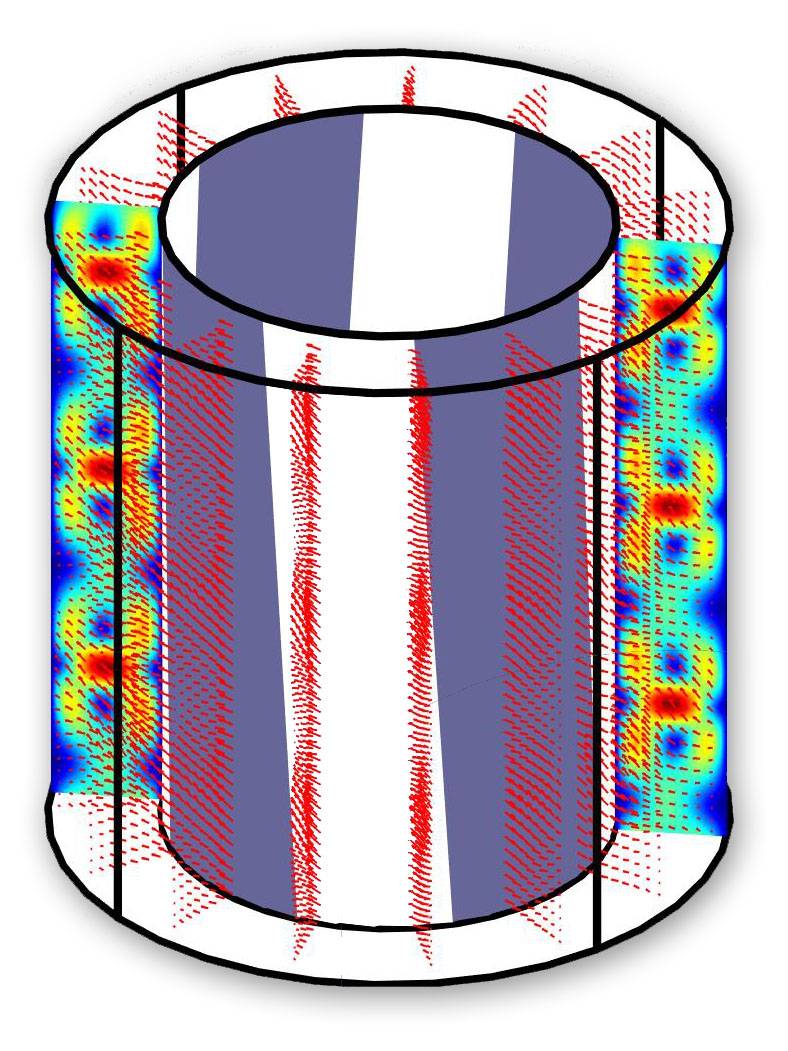Axisymmetric Fluid Flow
FEATool is designed to be able to perform complex multiphysics simulations in arbitrary dimensions (1D, 2D, and 3D). However, running full 3D simulations often requires a significant amount of computational resources in the form of memory and simulation time. It is therefore desirable to find simplifications to reduce …
Flow Around a Cylinder
Benchmark problem for stationary, laminar, and incompressible flow around a cylinder. Although it is not possible to derive an analytical solution to this test case, very accurate numerical solutions to benchmark reference quantities have been established for the pressure difference, drag, and lift coefficient [1],[2]. …
Flow in Driven Cavity
Stationary and laminar incompressible flow in a square cavity (Reynolds number, Re = 1000). The top of the cavity is prescribed a tangential velocity while the sides and bottom are defined as no-slip zero velocity walls. This model is available as an automated tutorial by selecting Model Examples and Tutorials… …
Flow in Porous Media
Axisymmetric laminar fluid flow in a diffusor duct or reaction chamber blocked by sections of a porous material. The model features several partially active subdomains with the Brinkman equations governing the fluid flow. The flow field with and without the porous material is compared. This model is available as an …
Flow Over a Backwards Facing Step
Flow over a backwards facing step is a classic computational fluid dynamics test problem which is used extensively for validation of simulation codes. The test problem essentially consists of studying how a fully developed flow profile reacts to a sudden expansion in a channel. The expansion will cause a break in the …
Heat Exchanger
This heat exchanger example illustrates the multiphysics modeling capabilities of FEATool. The model consists of a series of heated pipes surrounded by a fluid at a lower temperature, and features effects of both free and forced convection. Two types of physical phenomena are considered, fluid flow which is modeled by …
Laminar Channel Flow
Stationary and incompressible laminar Poiseuille flow in a two- dimensional rectangular channel. With a constant inflow profile u(0,y) = Umax and fixed no-slip walls, a fully developed laminar parabolic profile, u(y,L) = Umax4/h2y(h-y) is expected to develop at the outflow. This model is available as an automated …
Vortex Flow
This example studies the time dependent decay from introducing standing vortices in a periodic domain. Due to the even spacing and counter rotation, the vortices will stay in place and simply loose intensity with time, and eventually the flow will return to a perfectly steady state. This is in fact one of the few model …
Axisymmetric Swirling Flows
Fluid flows with swirl effects can occur in rotationally symmetric geometries where the azimuthal or angular velocity component is non-zero. In this case one must solve the fully three-dimensional Navier-Stokes equations. However, due to the assumption that azimuthal variations can be neglected, it is still sufficient …
